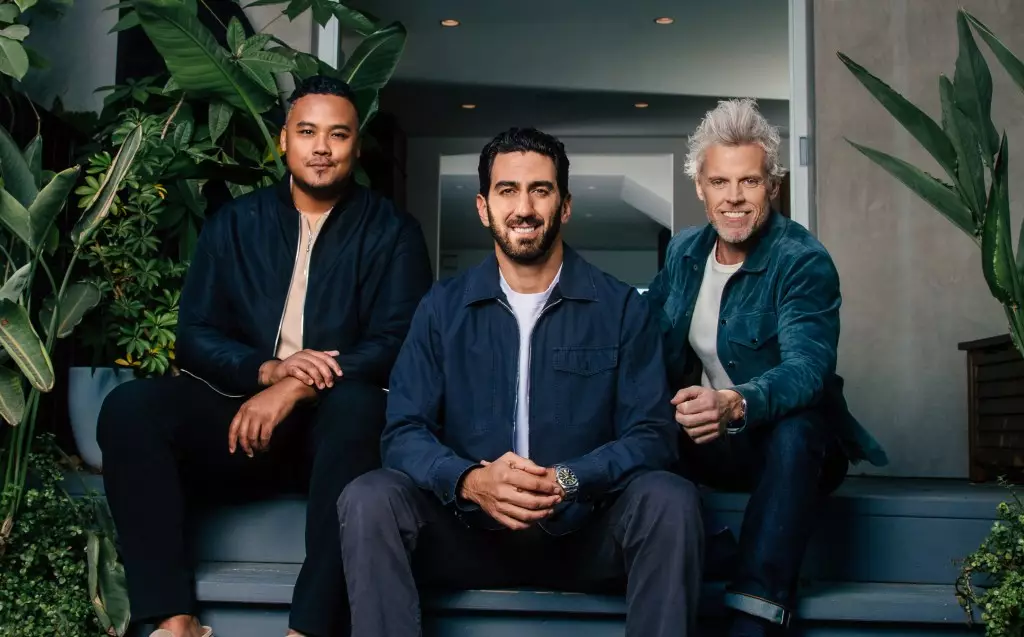In the realm of entertainment, the rise of generative artificial intelligence (AI) has stirred considerable intrigue and controversy. The recent launch of Promise, a new generative AI studio, embodies the industry’s growing acceptance of this technology. Backed by high-profile investors such as Peter Chernin’s The North Road Company and the venture capital powerhouse Andreessen Horowitz, Promise aims not only to produce films and series but also to push the boundaries of storytelling by exploring novel formats. With an ambitious vision, the studio has made a declaration of intent to collaborate closely with top-tier Gen AI artists, Hollywood talent, and rights-holders to forge a diverse and captivating portfolio of projects.
At the helm of Promise are three prominent tech and industry figures: George Strompolos, Jamie Byrne, and Dave Clark. Each brings a wealth of experience and expertise that could set the studio apart in a competitive landscape. Strompolos, formerly the CEO of the streaming video service Fullscreen, emphatically believes that the current climate presents an unparalleled opportunity to redefine storytelling through AI. As the studio’s CEO, he envisions a paradigm shift in the way films and series are conceptualized and produced, aligning technology with traditional filmmaking techniques for greater creative outcomes.
The backdrop against which Promise emerges is characterized by a significant reckoning in Hollywood concerning the role of AI in creative endeavors. In 2023, both the Writers Guild of America (WGA) and the Screen Actors Guild (SAG-AFTRA) grappled with these concerns during pivotal negotiations with the Alliance of Motion Picture and Television Producers (AMPTP). These events ushered in an era of skepticism and resistance toward AI, prompting major studios like Disney to establish corporate departments explicitly dedicated to AI initiatives. Similarly, Lionsgate has entered partnerships with AI companies to remain relevant in this evolving landscape.
This climate of cautious optimism and proactive adaptation underscores the dual nature of the industry’s relationship with AI technology. While some see a threat in the rising influence of AI, others recognize its potential to revolutionize storytelling. This intersection of fear and hope drives Promise’s mission to integrate AI into the creative process while ensuring that the voices of artists are not only heard but are central to every project. Strompolos’ bold assertion that the studio aims to “set a new standard for high-quality storytelling” reflects an understanding that artists and technology must coalesce harmoniously to unlock storytelling’s full potential.
Promise’s approach emphasizes a collective effort among creatives. Strompolos, Byrne, and Clark are committed to forming alliances with a variety of creative professionals, including writers, directors, actors, and visual effects artists, to create a collaborative ecosystem tailored to the unique vision of each production. The company’s strategy reflects a broader trend in the industry to harness the collective prowess of diverse talents, ensuring that stories resonate authentically with audiences.
As President and COO, Byrne envisions a supportive environment for Gen AI artists, advocating for partnerships with rights-holders to elevate underrepresented narratives. This commitment raises essential questions about intellectual property and artistic integrity in an era increasingly driven by technology. By confronting these challenges head-on, Promise aims to build trust and mutual respect among creators and stakeholders.
Central to Promise’s innovative vision is a groundbreaking software product known as MUSE. Billed as the first-of-its-kind production workflow tool, MUSE is designed to seamlessly integrate advanced generative AI technology into various stages of film and series production. The intention is to create a streamlined, collaborative, and secure environment that enables storytellers to achieve the highest quality output.
The introduction of MUSE represents a significant leap forward in production capability, making it possible for artists to engage with AI in a manner that enhances rather than diminishes their creative voice. With MUSE, the founders of Promise are cultivating an atmosphere where artists can explore daring ideas, take creative risks, and ultimately expand the possibilities of storytelling itself.
As Promise embarks on its journey, it stands at the intersection of technology and artistry, ready to shape the future of storytelling. The studio’s founding team embodies the belief that this pivotal moment in entertainment can redefine not just how stories are told, but who gets to tell them. By prioritizing collaboration and innovation, Promise showcases that generative AI can be more than just a tool—it can be a catalyst for transformation in the world of film and television. The excitement surrounding Promise’s potential suggests that the future of on-screen storytelling is not only bright but also full of revolutionary possibilities.


Leave a Reply